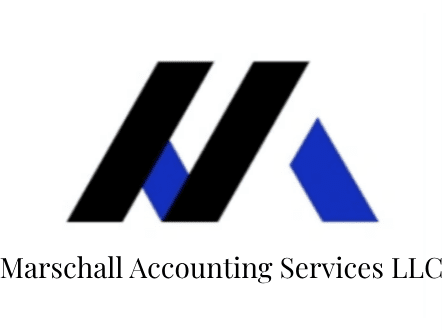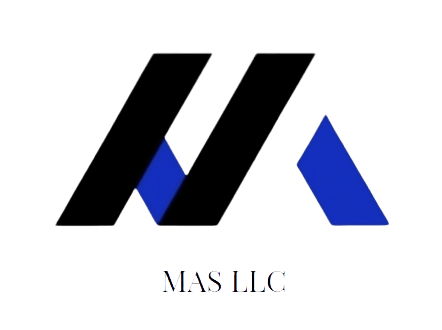Jessica I. Marschall, CPA
May 1st, 2025
The Qualified Small Business Stock (QSBS) provision under Internal Revenue Code §1202 provides one of the most powerful tax benefits available to founders, early employees, and investors in eligible startup companies. For taxpayers who meet specific requirements, gains from the sale of QSBS may be excluded from federal capital gains tax—up to 100%—on a potential $10 million or 10x basis exclusion, whichever is greater.
Yet, this exclusion is not automatic. The qualification criteria are narrow, and the risks of missing documentation or violating eligibility rules are substantial. This article outlines what qualifies as QSBS, which businesses and services are excluded, what valuation requirements must be met, and how to preserve and defend this substantial benefit.
1. What Is Qualified Small Business Stock (QSBS)?
Qualified Small Business Stock refers to stock issued by a C corporation that meets specific requirements at the time of issuance and during the taxpayer’s holding period. If all criteria are met, a portion—or in some cases, all—of the gain on the sale of such stock may be excluded from federal tax.
2. Requirements for a Company to Qualify as a QSBS Issuer
To qualify under §1202, the issuing corporation must meet all of the following requirements:
a. Domestic C Corporation Status
- The issuer must be a domestic C corporation at the time the stock is issued and during substantially all of the taxpayer’s holding period.
- S corporations, LLCs, and partnerships do not qualify.
b. $50 Million Gross Assets Test
- Immediately before and after the issuance, the company must have gross assets of $50 million or less.
- This includes cash, tangible assets, and intangible property, using adjusted tax basis, not fair market value.
- If a company exceeds the $50 million cap before issuance, the stock is not QSBS. If it exceeds the cap afterward, existing stock may still qualify.
c. Active Business Requirement (80% Test)
- During at least 80% of the taxpayer’s holding period, the corporation must use at least 80% of its assets (by value) in the active conduct of one or more qualified trades or businesses.
- Passive investment, real estate holding, or holding subsidiaries without operational activity disqualifies the stock.
3. Disqualified Businesses – The SSTB Exclusion
Certain businesses are specifically excluded under IRC §1202(e)(3) and mirror the Specified Service Trade or Business (SSTB) language from §199A. Disqualified SSTBs include:
- Health (e.g., physicians, chiropractors)
- Law
- Accounting
- Consulting
- Financial services (e.g., investment advisors, brokers)
- Brokerage services
- Athletics and performing arts
- Actuarial science
- Engineering and architecture
- Any business where the principal asset is the reputation or skill of one or more of its employees
Notably, tech companies, manufacturing firms, product-based startups, software as a service (SaaS) platforms, and many clean energy ventures often do qualify, provided they are not performing disqualified services.
4. Stock Issuance Requirements and Holding Period
- The stock must be originally issued to the taxpayer in exchange for money, property, or services (not via secondary market or transfer).
- The taxpayer must hold the stock for at least five years to claim the exclusion.
- Stock acquired via exercise of options or convertible notes can qualify, but the five-year clock begins when the stock is actually issued, not when the option was granted.
5. Timing and Role of Valuation
a. When Must You Establish Initial Valuation?
- You must establish the company’s gross assets at the time of issuance to confirm whether it was below the $50 million cap.
- This typically involves:
- Review of the balance sheet, including liabilities and basis of intangible/tangible assets
- Inclusion of recent financing rounds (including SAFE or convertible notes likely to convert)
- A formal valuation is not legally required, but a contemporaneous valuation memo is highly advisable to document eligibility, especially if there are intangible assets or rapid capital infusions.
b. When Should Valuation Be Refreshed?
- A new valuation should be performed if:
- The company raises a new round of funding
- It receives substantial asset contributions or undergoes a merger
- It issues new stock and wants to determine whether that issuance still qualifies
- Note: Each stock issuance must be separately analyzed to determine if QSBS treatment applies at that time.
6. Long-Term Tax Benefits of QSBS
The §1202 exclusion offers significant federal tax benefits:
| Date of Stock Acquisition | % of Gain Excludable | Applicable Law |
| After Sept. 27, 2010 | 100% | No AMT; no federal tax |
| Feb. 18, 2009 – Sept. 27, 2010 | 75% | Subject to AMT |
| Before Feb. 18, 2009 | 50% | Subject to AMT |
Exclusion Limits:
- Greater of $10 million or 10 times the taxpayer’s adjusted basis in the stock.
- Applies per-issuer, per-taxpayer.
Tax Reporting Considerations:
- Reportable on Schedule D of the Form 1040
- Taxpayers must keep detailed records of acquisition date, method of purchase, original issuer details, and valuation at issuance.
7. Planning Tips and Common Pitfalls
- Document original issuance: Retain copies of stock purchase agreements, board
- Avoid disqualifying restructures: Converting to an LLC or being acquired by a non-C corp may break QSBS eligibility.
- Check investor transfers: Transferring stock via gift may preserve QSBS, but sales or certain reorganizations may not.
- Consider rollovers: Under IRC §1045, QSBS can be sold before 5 years and proceeds reinvested in new QSBS stock to continue eligibility.
QSBS provides a rare opportunity for complete or substantial federal tax exclusion on capital gains from successful early-stage investments. However, the rules are complex and must be carefully tracked from the date of issuance through to the date of sale. Startup founders, investors, and key employees should work closely with experienced legal and tax advisors to structure, document, and preserve eligibility. Establishing a contemporaneous valuation and ongoing asset testing is not just good governance—it is a shield against future IRS scrutiny.
If your company may qualify, or if you’re planning a stock issuance, early intervention is key. The benefits can be extraordinary—but only if handled with precision from day one.
Jessica I. Marschall, CPA, is the President & CEO of MAS LLC, The Green Mission Inc., and Probity Appraisal Group. She specializes in tax strategy, business valuations, and sustainable business planning for small to mid-sized enterprises.




